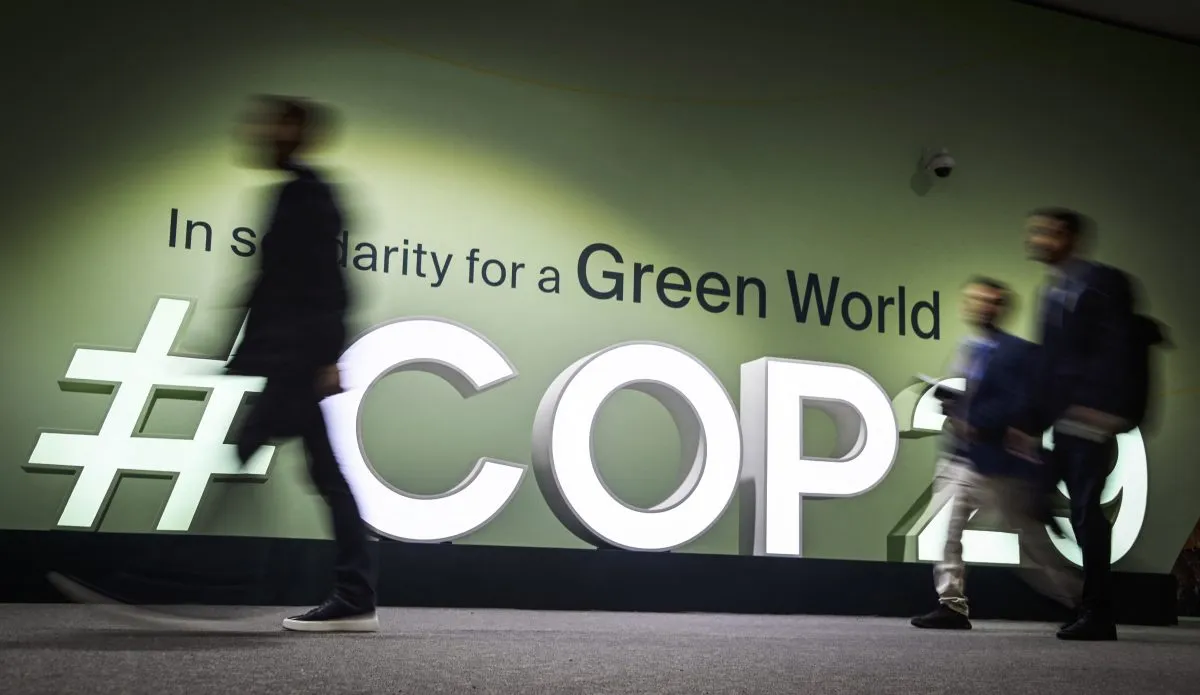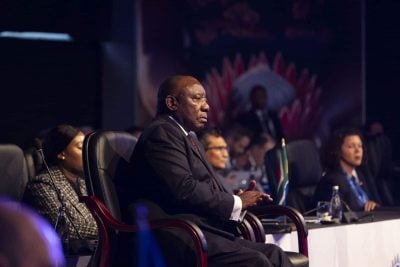This article is part of a series produced in collaboration with the African Development Bank in light of its sixtieth anniversary. Please visit our dedicated portal to read about the Bank's history and its activities on the continent.
Despite being home to nine of the world’s ten most vulnerable countries to climate change, Africa receives only 3-4% of global climate finance.
This stark climate injustice is a major focus for the African Development Bank at COP29. The Bank’s presence at the conference in Baku, Azerbaijan, underscores its commitment to ensuring Africa has access to the necessary resources for both mitigation and adaptation efforts.
One of the core contributions of the Bank is its longstanding support for the African Group of Negotiators (AGN). The Bank provides technical expertise, knowledge products, and financial support to ensure African negotiators can effectively participate in COP negotiations. This ensures that Africa’s specific needs and circumstances are well-represented in discussions on mitigation, adaptation, and climate finance.
At COP29, the Bank offered crucial support to the AGN, particularly on issues like the operationalisation of the new Loss and Damage Fund, carbon markets, and Just Transition frameworks.
The Bank also showcased some of the key initiatives it is spearheading to bridge the climate finance gap in Africa. Through flagship initiatives such as Desert to Power, the Africa NDC Hub, and Technologies for African Agricultural Transformation (TAAT), the Bank highlighted how African countries are actively taking steps to meet their climate commitments.
Forging partnerships to scale up financing
The African Development Bank highlighted the critical need for partnerships to scale up climate financing for Africa. Collaborating with key organisations such as the African Union Commission, the UN Economic Commission for Africa (UNECA), and the African Union Development Agency’s New Partnership for Africa’s Development (AUDA-NEPAD), the Bank hosted a high-level session on Africa Day.
This session focused on collaborative strategies to increase financing for adaptation, underscoring the importance of collective efforts in addressing climate challenges on the continent.
“We hope to move from millions and billions (of dollars) to the thousands of billions of dollars Africa clearly needs for climate action. The success of this COP, described as the ‘finance COP,’ will largely depend on the level of ambition of the climate finance target,” said Kevin Kariuki, Vice President of the African Development Bank Group for Power, Energy, Climate and Green Growth.
Leaders at the session underscored the need for concessional climate financing, arguing that Africa must avoid burdening itself with costly loans to address a problem it did not cause.
“We are victims of a climate crisis for which we are not responsible … We refuse to ask for loans for problems we have not caused,” stated Mithika Mwenda, Executive Director of the Pan African Climate Justice Alliance (PACJA). “It is essential that climate finance is based on grants and that they are appropriate to the needs of our communities in Africa.”
Building a resilient future
UNECA Executive Secretary Claver Gatete outlined five key priorities for addressing the climate crisis: harnessing critical minerals to build a resilient future, increasing carbon capture in regions like the Congo Basin, securing an estimated $1.3 billion annually for the Sustainable Development Goals, accelerating the clean energy transition with Africa as a potential hub, and taking collective action to reduce greenhouse gas emissions.
Musalia Mudavadi, Prime Cabinet Secretary representing Kenyan President William Ruto, called on world leaders to fulfil their 2009 promise of providing $100 billion a year in climate finance. “It is essential that this time, words are translated into concrete actions,” Mudavadi urged.
He expressed concern over the declining climate funding, which is falling short of its planned doubling by 2025. “This shortfall is compromising the achievement of the Sustainable Development Goals, undermining the investments already made in resilience, and threatening the aspirations set out in the African Union’s Agenda 2063,” he cautioned.

 Sign in with Google
Sign in with Google 



